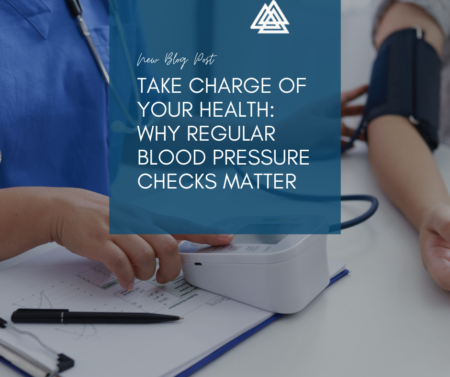 May 17 marks World Hypertension Day, an important global initiative aimed at raising awareness about high blood pressure and its impact on health. As one of the leading risk factors for cardiovascular disease, hypertension often goes unnoticed until it leads to serious complications. In this blog post, we’ll delve into the importance of regular blood pressure checks, why raised blood pressure is dangerous, and how you can take steps to control it and safeguard your health.
May 17 marks World Hypertension Day, an important global initiative aimed at raising awareness about high blood pressure and its impact on health. As one of the leading risk factors for cardiovascular disease, hypertension often goes unnoticed until it leads to serious complications. In this blog post, we’ll delve into the importance of regular blood pressure checks, why raised blood pressure is dangerous, and how you can take steps to control it and safeguard your health.
Regular blood pressure checks are essential for monitoring your cardiovascular health and detecting potential issues early. Blood pressure is a key indicator of heart health, reflecting the force of blood against the walls of your arteries as your heart pumps it around your body. Elevated blood pressure, if left untreated, can increase the risk of heart disease, stroke, kidney disease, and other serious health conditions.
Why Raised Blood Pressure is Dangerous:
- Increased Risk of Heart Disease and Stroke: High blood pressure puts added strain on the heart and blood vessels, increasing the risk of heart disease and stroke. Over time, elevated blood pressure can damage the arteries, leading to atherosclerosis (hardening of the arteries) and narrowing of blood vessels, which can impede blood flow to vital organs.
- Kidney Damage: The kidneys play a crucial role in regulating blood pressure by filtering waste and excess fluid from the blood. Chronic hypertension can damage the kidneys’ blood vessels and impair their function, potentially leading to kidney disease or failure.
- Vision Problems: High blood pressure can damage the blood vessels in the eyes, leading to vision problems or even vision loss. Hypertensive retinopathy is a condition characterized by damage to the retina caused by elevated blood pressure, which can result in blurred vision or vision changes.
Taking Steps to Control High Blood Pressure:
- Monitor Your Blood Pressure Regularly: Check your blood pressure regularly, either at home with a home blood pressure monitor or at a healthcare provider’s office. Aim to monitor your blood pressure at least once a month or as recommended by your healthcare provider.
- Maintain a Healthy Lifestyle: Adopting healthy lifestyle habits can help control high blood pressure and reduce the risk of complications. Focus on:
- Eating a balanced diet rich in fruits, vegetables, whole grains, and lean proteins.
- Limiting salt intake and avoiding high-sodium processed foods.
- Engaging in regular physical activity, such as brisk walking, swimming, or cycling.
- Managing stress through relaxation techniques, meditation, or hobbies.
- Take Medications as Prescribed: If lifestyle changes alone are not sufficient to control your blood pressure, your healthcare provider may prescribe medications to help lower it. It’s essential to take medications as prescribed and attend regular follow-up appointments to monitor your progress and adjust treatment as needed.
On World Hypertension Day and beyond, prioritize your cardiovascular health by checking your blood pressure regularly and taking steps to control elevated blood pressure. By staying proactive and informed, you can reduce your risk of heart disease, stroke, and other complications associated with hypertension. Remember, small lifestyle changes can make a big difference in managing your blood pressure and promoting overall well-being. Take charge of your health today for a healthier tomorrow.
